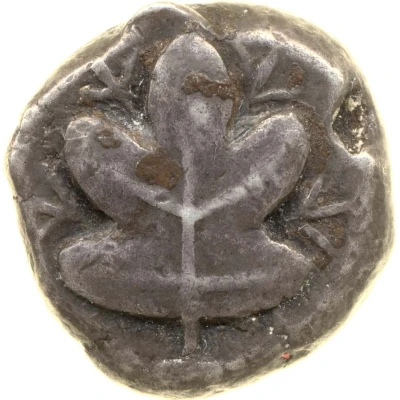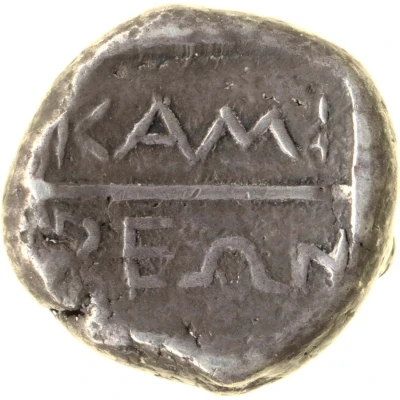


© Trustees of the British Museum
Stater 480 BC - 460 BC
| Silver | 11.33 g | 18 mm |
| Issuer | Kamiros (Rhodes) |
|---|---|
| Type | Standard circulation coin |
| Years | 480 BC - 460 BC |
| Value | Stater (2) |
| Currency | Aeginetic Drachm |
| Composition | Silver |
| Weight | 11.33 g |
| Diameter | 18 mm |
| Shape | Round (irregular) |
| Technique | Hammered, Incuse |
| Orientation | Variable alignment ↺ |
| Demonetized | Yes |
| Updated | 2024-10-10 |
| Numista | N#393104 |
|---|---|
| Rarity index | 100% |
Reverse
Two-line inscription in separated oblong incuse.
Script: Greek
Lettering:
KAMI
PEΩN
Comment
Pozzi 2671; Traité pl. XX, 8; BMC Caria pg. 224, 12.
Interesting fact
The Kamiros Stater was used as a form of currency in ancient Greece and features a unique design on its reverse side. Instead of depicting a mythological figure or deity, as was common on many ancient Greek coins, the Kamiros Stater features a representation of a rose. This image was meant to symbolize the wealth and prosperity of the city of Kamiros, which was known for its rich agricultural land and bountiful harvests. The use of a rose as a symbol of prosperity on this coin makes it stand out from other ancient Greek coins and highlights the unique cultural and economic context of Kamiros during this time period.